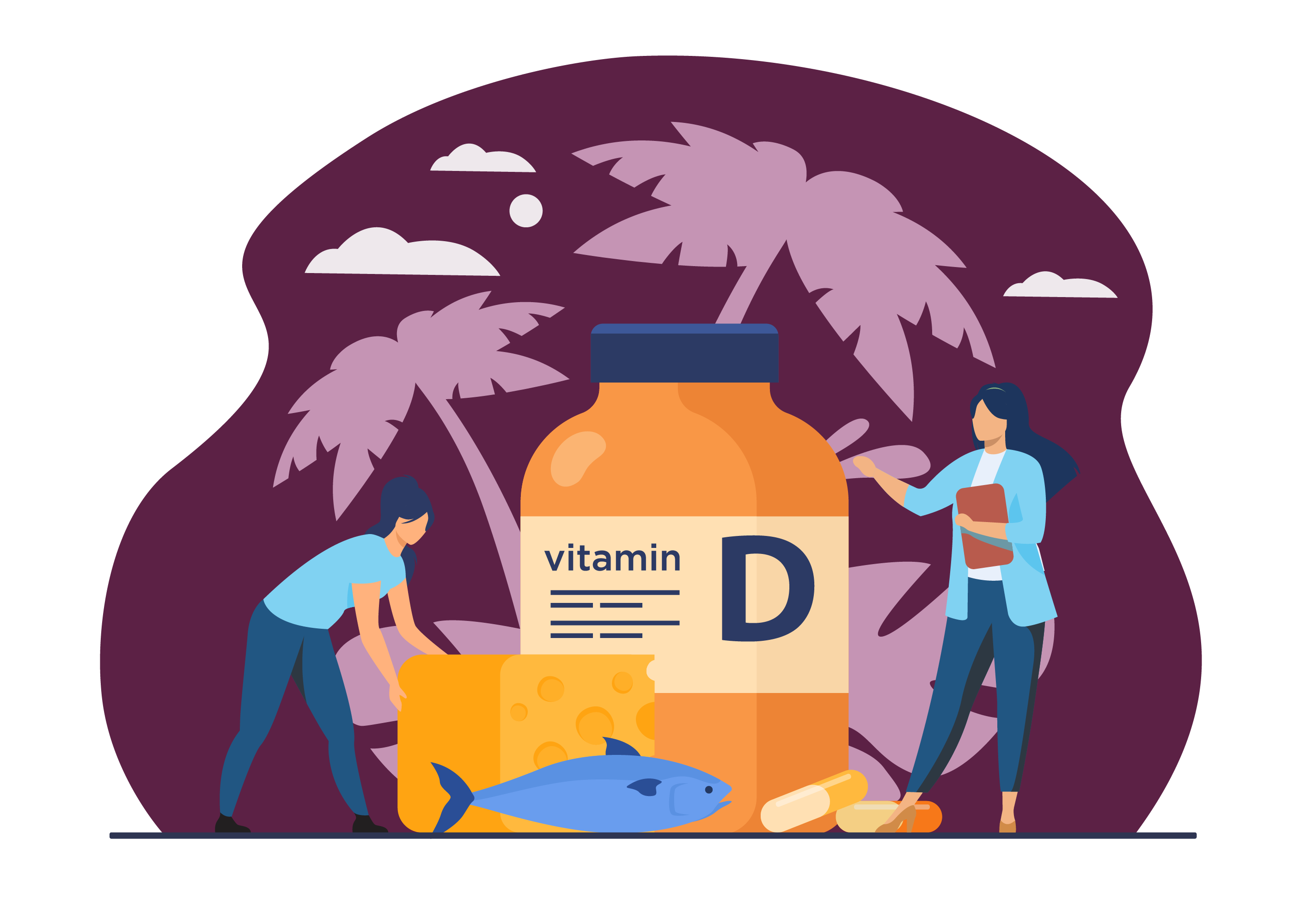Vitamin D and Ovarian Cancer
Ovarian cancer is the deadliest type of cancer in women. Most often, it’s not detected until later stages, making it difficult to cure or treat.
The good news is you may be able to help prevent it with vitamin D. Discover what the latest research says about vitamin D and ovarian cancer prevention.
What is Ovarian Cancer?
The ovaries are female reproductive glands. They produce hormones that regulate the menstrual cycle. They are responsible for releasing an egg each month. After ovulation, the egg travels down the fallopian tubes to reach the uterus.
Ovarian cancer occurs when cells grow out of control. It can begin in the ovaries or the fallopian tubes.
Ovarian cancer is hard to catch in its early stages because many women don’t have symptoms until the disease has advanced. Common symptoms of ovarian cancer include:
- Bloating
- Belly pain
- Feeling full quickly or having difficulty eating
- Having to urinate frequently or urgently
These symptoms can also be related to other health issues. Visit a gynocologist if your symptoms are persistent or abnormal or more painful than usual.
Testing for Ovarian Cancer
Ovarian cancer isn’t detectable on a test like a pap smear. Doctors screen for it by doing a pelvic exam. This is to check for enlarged ovaries or extra fluid in the abdomen.
If there is suspicion of ovarian cancer, your doctor can run tests. The CA-125 test is a blood test that checks for a tumor marker. A transvaginal ultrasound is a closer way to look for tumors.
Ovarian Cancer Prevention
Because it is most often caught at an advanced stage, ovarian cancer is the most fatal type of cancer for women. After five years, the survival rate is less than 40%.
Prevention and early detection are tricky with this type of cancer. Knowing the warning signs and getting routine medical care are the best ways to catch it.
In general, experts recommend eating a healthy diet and living an active lifestyle to prevent cancer. But recent research says you can prevent ovarian cancer by getting plenty of vitamin D.
Here’s what the research says.
Benefits of Vitamin D
Vitamin D is a prohormone that is absorbed by fat cells in the body. It helps the body absorb calcium, creating strong bones and teeth. It supports a healthy immune system.
It also has anti-cancer properties. A 2020 study found vitamin D lowers the risk of advanced cancer. Vitamin D regulates cell growth and division. This prevents tumor growth, which stops cancer from advancing and spreading.
Not only does vitamin D improve survival rates, but it may prevent ovarian cancer. According to a 2018 study, people with lower vitamin D levels have a higher risk of diseases and cancer. The study supports vitamin D supplementation as a way to prevent ovarian cancer.
How to Get Enough Vitamin D
There are three main ways to get vitamin D: sunshine, food and supplements. Most women don’t get the daily recommended amount through diet alone.
Sunshine
When exposed to sunlight, the skin converts UV rays to vitamin D3 in the body. Being in direct sunlight for 15 minutes three times a week can give you the recommended amount of vitamin D.
Vitamin D-Rich Foods
Eating a balanced diet is a good way to get vitamin D. Add vitamin D-rich foods to your diet such as:
- Eggs
- Oysters
- Beef liver
- Fatty fish like salmon, rainbow trout, tuna, herring, and sardines
- Mushrooms
- Milk
- Yogurt
- Cheese
- Kefir
Manufacturers often fortify foods with vitamin D. Check the label to see if food or drinks are fortified. Examples:
- Orange juice
- Breakfast cereals
- American cheese
- Non dairy milk, such as soy or almond
- Tofu
Supplements
Adults and children should get 600 international units (IU) of vitamin D daily. Consider taking a vitamin D supplement as part of a cancer prevention plan.
A typical multivitamin contains 400 IUs of vitamin D. Ask your doctor before taking vitamin D in addition to a daily multivitamin.
Steps You Can Take to Prevent Ovarian Cancer
Talk to your gynecologist about your risk factors for ovarian cancer, such as a family history.
If you have a moderate risk, ask about getting your vitamin D level checked. The most accurate way to know your vitamin D level is by getting a 25-hydroxyvitamin D blood test.
Reduce your risk of ovarian cancer by getting more vitamin D today. Get sunshine and add vitamin D-rich foods to your diet. As always, ask a healthcare provider before taking any supplements.
Sources
- Signs and symptoms of ovarian cancer
- The role of vitamin D in ovarian cancer: epidemiology, molecular mechanism and prevention
- Vitamin D and cancer prevention
- Effect of Vitamin D3 Supplements on Development of Advanced Cancer: A Secondary Analysis of the VITAL Randomized Clinical Trial
- Low vitamin D levels
- Food sources of vitamin D

